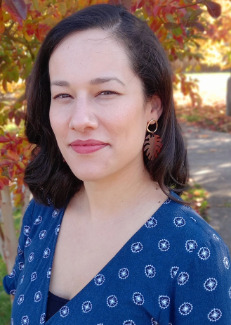Community
Copyright@ Australian Catholic University 1998-2026 | ABN 15 050 192 660 CRICOS registered provider: 00004G | PRV12008
Copyright@ Australian Catholic University 1998-2026 | ABN 15 050 192 660 CRICOS registered provider: 00004G | PRV12008

For some time now, the backlash against social media has been building, and warnings that platforms like Instagram and TikTok are responsible for a worrying decline in young people’s mental health have grown increasingly loud.
In response, policymakers have looked for ways to limit access to such sites, in the hope of averting the apparent threats they pose. But while the experts in this space are conscious that unhealthy media consumption can be risky to young people – potentially damaging their self-esteem, affecting their body image, and leaving them susceptible to harm from misinformation and the marketing of junk food, alcohol and gambling – few believe that trying to restrict children’s access will solve the problem.
Instead, they argue that children and adolescents need to be explicitly taught a set of skills that are crucial in today’s digital age.
“Media literacy is about educating young people so that they’re better able to critically analyse the media they’re exposed to in their everyday world,” says multimedia literacy expert Dr Chloe Gordon, a research fellow at ACU’s Institute for Positive Psychology and Education.
“It’s about creating a space where you encourage and invite young people to ask questions about the media they’re consuming, and to consider things like: Who created this message and for what purpose? What information might be missing, and what hidden messages might be here? How do they collect information, and what might they be doing with my data?”
Over the past decade, Dr Gordon has been at the coalface of the media literacy movement in Australia.
With a background in primary school teaching, she has quickly built a reputation for high-impact interdisciplinary research aimed at helping young people to negotiate the modern-day media minefield.
She notes, however, that her approach has undergone a subtle shift since joining the Institute for Positive Psychology and Education in 2023.
While her early work explored the effect of media literacy on health concerns like alcohol consumption and body image, Dr Gordon is now focused on investigating the relationship between media literacy and wellbeing.
This broader, more positive framing of the issue acknowledges the potential benefits of digital media to young people, including its links to social connection, learning, and creativity.
“My early research came from the perspective that there’s a harm that needs to be prevented, which is essentially a protectionist approach to media literacy,” says Dr Gordon, whose media literacy interventions related to alcohol and body image were adopted by Australian schools and health services.
“I’m now more interested in viewing the issue through a wider lens, looking more generally at how media literacy can support wellbeing and flourishing in young people, empowering them to use media in a positive way as they participate in society.”
Her recent findings, based on a forthcoming meta-analysis of 15 studies involving 16,000 young people, show that better media literacy is associated with improved overall wellbeing. This suggests that those who ask critical questions about the media they consume are more likely to feel better about themselves and their lives.
Says Dr Gordon: “This is likely because being able to critically engage with digital media can protect people from some its negative aspects, while also harnessing its benefits, like connecting with friends or contributing to social causes.”
Despite its potential to empower students to think critically about the online tools they use, media literacy education is currently only taught in Australian classrooms on an ad hoc basis.
Meanwhile, amid the widespread anxiety about the risks of unhealthy media consumption, the push to introduce laws that restrict access to certain sites is growing stronger.
Dr Gordon is not alone in her view that tougher age restrictions and bans are unlikely to have the desired effect. She also points out that despite the moral panic about social media, there is no scientific consensus on the impact it is having on the mental health of young people.
“I would say that the relationship between social media use and mental health is actually quite complex – it’s not a simple direct relationship and there are some mixed findings,” she says.
Not to mention that societal fears about emerging technologies and practices – which in the past has included the printing press, radio, schooling and computers – are nothing new.
“While I think it’s important that we acknowledge that some aspects of modern technology are unhelpful and we need to remain mindful of those things, we also need take a balanced and nuanced approach that doesn’t just label it as all terrible and bad,” Dr Gordon adds.
“It’s a bit too simplistic to conclude that social media equals poor mental health, and it’s naïve to think that a blanket ban will solve all of our problems.”
So, how do we better support young people to be more media literate, allowing them to flourish in the online spaces they inhabit?
Drawing on her previous research, which has involved designing, implementing and evaluating media literacy programs for Australian schools, Dr Gordon recommends a multi-faceted approach that emphasises classroom-based programs.
She acknowledges, however, that this is a complicated endeavour. At present, media literacy is not mandated in the school curriculum, which is already overcrowded.
Rather than advocating for media literacy to be taught alongside core subjects like science and maths, as some observers have recommended, Dr Gordon suggests it could be taught through the wellbeing curriculum, which is already a key focal point in schools.
She also stresses the importance of developing media literacy programs that put young people at the centre of their own learning.
“We know that programs and interventions are more effective when co-designed with young people and we gain their input on it,” she says.
“Coming in and simply trying to convince them to stop using a certain platform is not going to be well received.”
Rather, Dr Gordon recommends a balanced approach that acknowledges both risks and benefits, arming young people with the tools they need to have positive and enjoyable experiences with media, and to flourish in their online environments.
Dr Chloe Gordon is a research fellow with the Institute of Positive Psychology and Education based at ACU’s Melbourne Campus. Her expertise lies in media literacy, school-based research and systematic reviews, with particular strengths in developing, implementing and evaluating theoretically-driven interventions using mixed methods.

Copyright@ Australian Catholic University 1998-2026 | ABN 15 050 192 660 CRICOS registered provider: 00004G | PRV12008